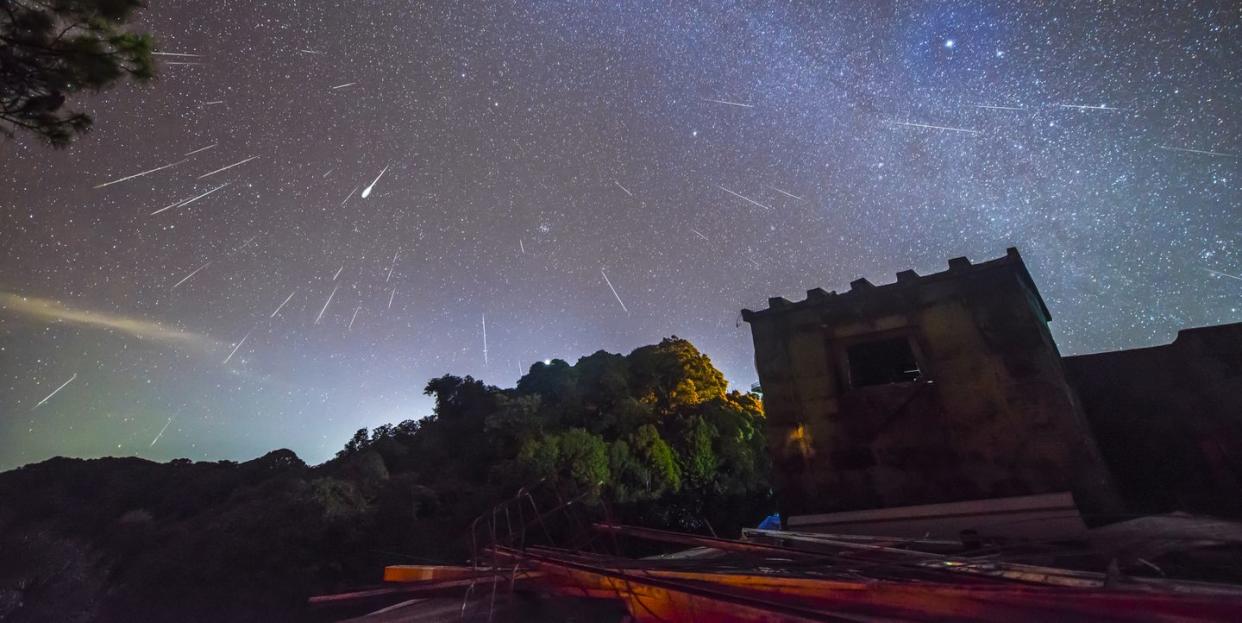Tonight's Meteor Storm May Have 6 Meteors Falling Per Minute

It's a good night to stay up past your bedtime and gaze up at the stars with your phone on the ready.
On Thursday night, November 21, the alpha Monocerotid meteor shower is predicted to turn into a wild meteor storm extravaganza, according to AccuWeather. While meteor showers occur frequently throughout the year, meteor storms like this are ultra rare. In fact, there hasn't been one since 1995.
This storm is predicted to peak around 11:50 p.m. EST, according to meteor scientists Esko Lyytinen and Peter Jenniskens. And the best weather conditions for viewing this show are expected across the western and north-central United States with only patchy clouds in the forecast.
There are a few things that make this storm such a phenomenon. “Unlike most meteor outbursts which last for several hours, strong activity from the alpha Monocertids is over within an hour and easily missed,” according to the American Meteor Society. And based on the last meteor storm that took place in the '90s, you can expect about 400 meteors to flash through the sky in that hour.
As AccuWeather explains, a meteor shower is caused when the Earth passes through a field of asteroid or comet debris. But if that dust trail is small and dense, it can prompt hundreds or even thousands of meteors to burn up in minutes, which is then considered a meteor storm.
But don't expect this storm to mirror a Disney World light show, and run continuously. “These meteors are never spaced evenly but appear in bunches so 2-3 meteors may be seen seconds apart and then an entire minute could go by without any activity,” says the AMS. So basically, the second you put your phone down certain the show is over, it will most likely spark up again.
As always, the AMS reminds us that this storm is only a prediction and not a certain event. But if you're game to watch, they suggest stepping outside an hour before the predicted time of maximum activity to start watching. If you miss it, you can still catch Venus and Jupiter side-by-side this weekend. It's a great season to stare up.
Follow House Beautiful on Instagram.
You Might Also Like

